Democratic Republic Of Congo
The umpteenth ceasefire has not been respected, the UN Security Council calls for negotiations which Kinshasa rejects and Angola announces the sending of soldiers as 25 years ago: despite intense activity diplomatically, the sky is not clearing up on the frontline of the M23 rebellion in eastern DRC.
Congolese government and diplomats say they still want to "give a chance" to the peace processes launched in Nairobi and Luanda, one of which aims to bring together around a table the many armed groups raging in the region, the other to silence the weapons of the M23 and to bring Rwanda closer to the Democratic Republic of Congo.
Historically complicated, relations between the two neighbours have been execrable since the resurgence at the end of 2021 of the M23 (March 23 Movement), a majority Tutsi rebellion that Kinshasa claims to be supported by Kigali with the aim of monopolizing the wealth of eastern Congo.
Although Kigali still denies it, "it is no longer to be demonstrated that Rwanda supports the M23", declared Sunday in Goma, the provincial capital of North Kivu, Nicolas de Rivière, ambassador of France to the United Nations, following a visit to the DRC by a Security Council delegation.
The Congolese government is asking the international community to take sanctions against Rwanda for this "aggression". His interlocutors do not exclude it, but "the way out of the crisis can only be political, it can only be through negotiation", insisted Nicolas de Rivière and his Gabonese counterpart Michel-Xavier Obiang.
The Security Council "should rather go and tell the Rwandan government to withdraw its soldiers who kill the Congolese and bombard entire cities", reacted Monday in Goma Placide Nzilamba, actor of the civil society of North Kivu. "They don't bring us a solution", also believes Mamy Asumini Kayumba, a resident of Goma. "We have been living these atrocities for almost 30 years, it is time for it to end".
In one year, the conflict with the M23 caused the displacement of some 800,000 people, causing a major humanitarian crisis.
As things stand, "it is out of the question, I repeat, to negotiate with the M23", Congolese government spokesman Patrick Muyaya declared at the end of February. "Let's be serious! The M23 is a terrorist movement," Foreign Minister Christophe Lutundula told the press on Monday evening.
Faced with a rebellion that is expanding its territory and has no strategic interest in ceasing fire, "the Congo is militarily in a difficult position", notes Reagan Miviri, a researcher at the Congolese institute Ebuteli. The UN delegates could only insist on the negotiations.
But negotiate on what? "It is very difficult to offer anything to the M23 in an election year," said the researcher. A presidential election, for which the outgoing head of state, Félix Tshisekedi, will be a candidate, is scheduled for December. Integrating M23 fighters into the army seems excluded and doing so in the administration "would be unpopular", continues Reagan Miviri.
Finally, surprise of the weekend, the Angolan government announced on Saturday that it would send a military unit to eastern DRC, after the failure of the ceasefire which should have come into force last Tuesday, to "secure the areas where members of the 23 are stationed".
This announcement brought back memories of the 1998-2002 war, which involved nine African countries and almost caused the country to implode.
A regional force, in which Kenyan and Burundian soldiers are already deployed, was created by the Community of East African States (ACS) and should precisely oversee the withdrawal of M23 fighters. The arrival of Angolans in the quagmire of the East, therefore, raises questions.
So far, the East African regional force has not forced the M23 to withdraw and finds itself criticized in the same way as the UN force present for 23 years in the country, where it has not reached to end the violence.
Angolan soldiers do not come "to attack, but to check how things are going", assured Monday evening the head of Congolese diplomacy. "There is no ambiguity, Angola is within its mandate", he insisted.



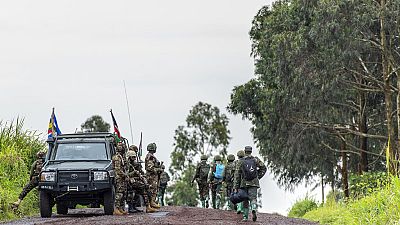

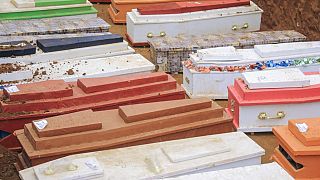
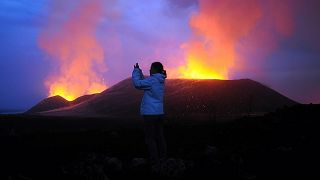
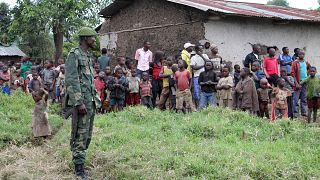
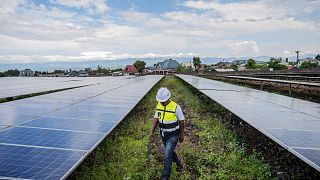
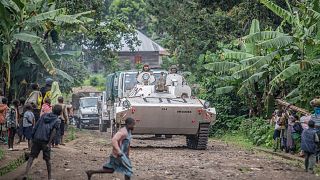
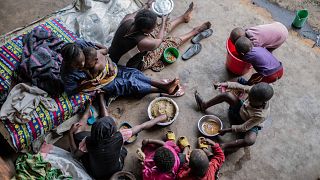



02:10
Congo-Rwanda deal: Uncertainty over whether the hostilities will end
01:47
'Minerals': Researcher explains U.S. interest in DRC-Rwanda truce
02:13
Congo and Rwanda sign a US-mediated peace deal aimed at ending decades of bloody conflict
00:54
African Human Rights court says it can hear case brought by DRC against Rwanda
01:11
Burundi calls on United Nations to recognize 1972 genocide against Hutus
01:20
Somalia launches Centennial Vision 2060 roadmap for 'peace, prospertity and progress'